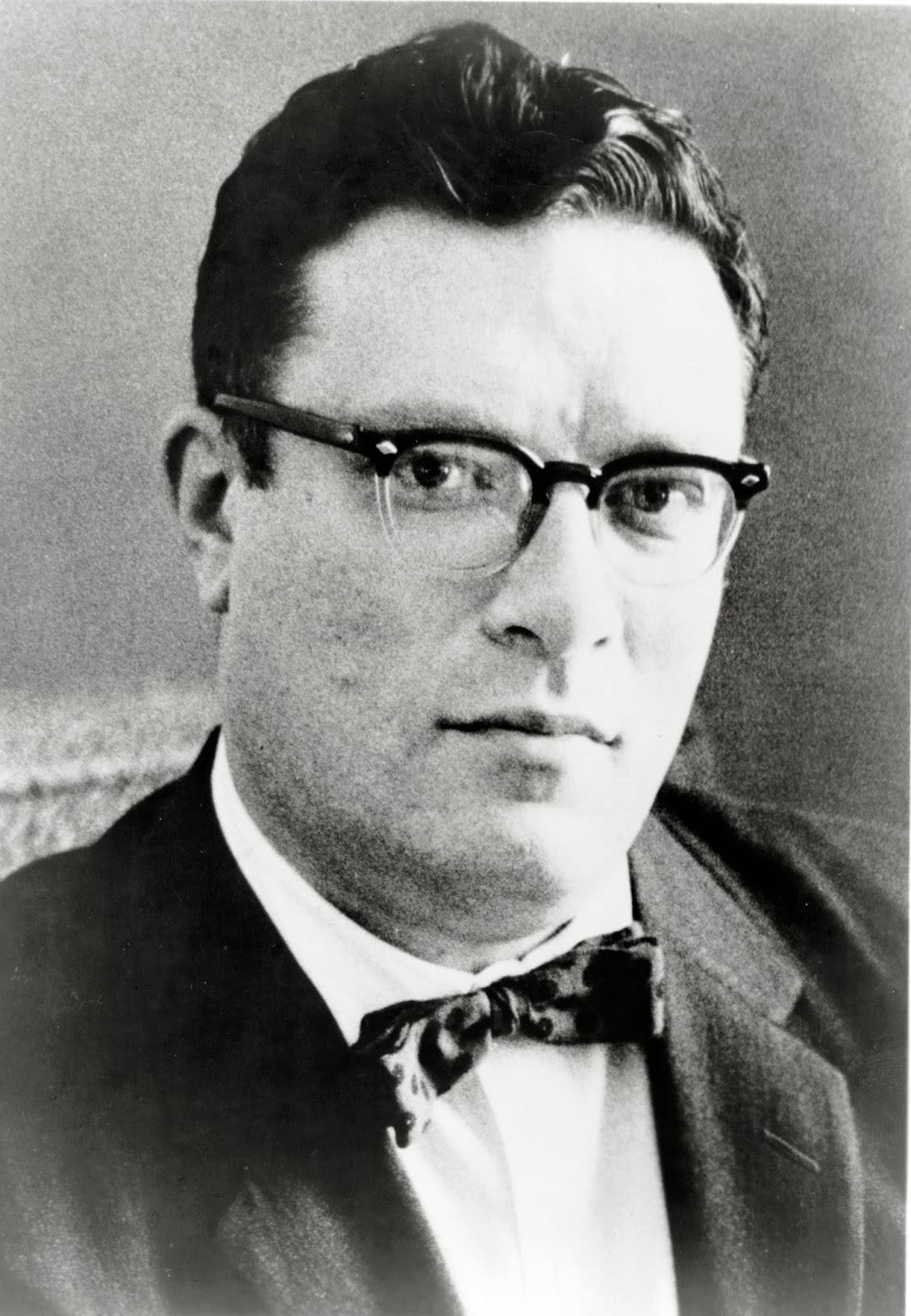Ever the
gentleman, Isaac Asimov moved beyond a pair of quite unfair reviews written 1955
issues of Imagination: Science Fiction
and Fantasy by engineer and fiction writer Henry Bott. Reviews that must have
been as painful as they were hyperbolic. After responding heatedly in an earlier
issue, Asimov offers the friendly hand of peace in the April 1955 issue, which Bott and his
publisher, William Hamling, having generated tons of free publicity in the
science fiction world via these provocative reviews, accept with every show of the same
gentlemanliness.
Asimov's letter of
conciliation appeared in the Editorial column, bookened by Hamling's comments:
Last month we presented an open letter by our book reviewer, Henry Bott, in reply
to
an article by Isaac Asimov, in which Isaac took issue with Bott's reviews in
Madge. We offered Mr. Asimov an opportunity to reply this month, if he
so chose. He did. Forthwith, Isaac Asimov's open letter to Imagination‑
It seems that Henry Bott
annoyed me with some of the things he said about me in his reviews which I
thought were unfair and uncalled for. It seems also that I have annoyed him
with some of the things I said in return. Well, that sort of thing can go on
forever without much profit to anyone.
Instead I would like to
return a soft answer. In fact, I
would like to praise Henry Bott and point out that despite my own sour thoughts
about him, he can indeed write a fair review. I am not too proud or stubborn to
admit I was wrong in that respect and to apologize for that.
To make my point clearer, I
would like to specify the review I mean and point out just why I think it is fair
and decent.
On page 122 of the February 1955
issue of IMAGINATION, Mr. Bott reviews a book called LUCKY STARR AND THE
OCEANS OF VENUS, by one Paul French.
Now Mr. Bott is not so
crazy-wild
about the book. He doesn't give it a rave review. He explains that in his
opinion it is a juvenile which is suitable only for beginners in the field. He
also expresses the thought that the book is not as good as juveniles written by
authors such as Heinlein.
 |
| Asimov |
Still, despite this, he is
careful to point out that he thinks it "is far superior to the comic
strip science
fiction pattern," that it"is
entertainment in its way and it won't upset anyone." He also says that
Paul French shows "inventiveness and a richness of imagination," and
that "he could produce a superior piece of work if he could pay more
attention to detail."
I am sure that Mr. French,
on reading
this review ,would feel quite good about the kind words and would feel no
rancor at. all about the eminently fair criticism. In fact, I am sure he would
say that he does his best to make his juveniles as good as Mr. Heinlein's, and
that perhaps he will improve as he. continues to try. He would also
ask Mr. Bott to feel free—if he ever has the time—to give' him examples of just
where he has fallen short in matters of detail. Mr. French would explain that
he learned a great deal from helpful reviewers and editors in the past and
hopes to continue learning in the future.
I am positive that Mr.
French would say all this. The reason I am positive is that Paul French and
Isaac Asimov) are the same person.
I feel certain that Mr.
Bott knew this rather open secret and, under the circumstances, his review is
all the more kind and fair.
I am very happy that Mr.
Bott does not dislike my work quite as much as he himself seemed to think he
did in last month's editorial. I certainly find that I, myself, do not dislike his work quite as much as I
had thought I did.
I shall continue to write
as well as I can and I feel sure that Mr.
Bott will continue to review
books in this
excellent combination of calmness and dignity, even when he doesn't like the book.
—Isaac Asimov
We're
pleased to publish this conciliatory letter, with the knowledge that peace now
reigns among
all concerned. To give credit where
it is due, Henry Bott, of course knew that Paul French. was an Asimov nom de
plume. Matter of fact, we
(blushingly admitted) I edited out a paragraph of the review containing a reference to this fact, because
the review had to fit an allotted space. At any rate, it's nice to know that
Hank's fairly favorable review spread enough balm into Gilead to still the troubled waters. See you next month.
 |
| Hamling |
wlh
This concludes our reprise of this incident from science fiction history.
For off-trail science fiction, fantasy and horror
- visit our website at https://futurespasteditions.com


No comments:
Post a Comment